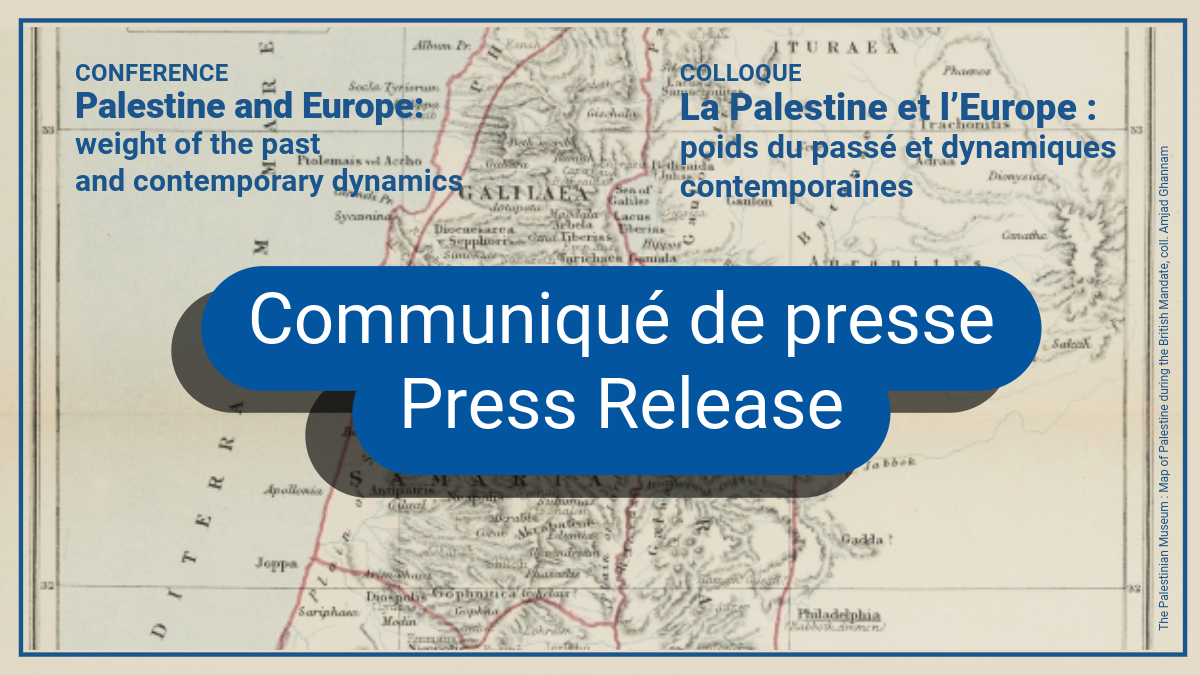We are angered and compelled to announce that the administrator of the Collège de France has decided to cancel the symposium “Palestine and Europe: The Weight of the Past and Contemporary Dynamics” – scheduled for November 13 and 14 – which had been planned for several months by the Chair of Contemporary History of the Arab World at the Collège de France and the Arab Center for Research and Political Studies in Paris (CAREP Paris).

This decision follows an article published in the conservative French weekly Le Point on November 7, as well as direct pressure exerted by the Ministry of Higher Education and Research, as publicly confirmed by Minister Philippe Baptiste on his social media account. Under the guise of “guaranteeing scientific rigor,” the Ministry is directly and politically intervening to silence scholarly research – in direct contravention of its fundamental mission to protect academic freedom.
The symposium had been designed in strict accordance with established scientific and scholarly procedures. The speakers came from prestigious universities, including the Swiss Federal Institute of Technology Lausanne (EPFL), the University of Amsterdam, INALCO (National Institute of Oriental Languages and Civilizations), SOAS (University of London), the Free University of Brussels, the University of Turin, the Complutense University of Madrid, Randolph-Macon College, Rice University, Roma Tre University, EHESS (School for Advanced Studies in the Social Sciences), CNRS (French National Centre for Scientific Research), and Queen Mary University of London.
The reputation of these internationally recognized researchers is now unjustly called into question by a biased press relaying the slanderous statements of the organization LICRA (International League Against Racism and Anti-Semitism), well known in France for its Islamophobic positions and especially for its systematic campaigns against Palestinian voices and scholarship.
“Palestine and Europe” aimed, from a historical and critical perspective, to analyze how the question of Palestine fits into contemporary European dynamics — in scholarship and politics alike. To twist and misconstrue this academic approach as a partisan or militant debate demonstrates a profound misunderstanding of the vocation of the social sciences and a troubling instrumentalization of the term “scientificity.”
The conference’s themes meticulously reflected a diversity of disciplines and academic approaches. The first two sessions, devoted to the history of the Zionist movement and Palestine under the British Mandate, brought together, among others, Rina Cohen-Muller, from the Hebrew Studies Department at INALCO, and Élisabeth Davin-Mortier from Sorbonne University, also an acclaimed Hebraist. Academic debates concerning the history of Zionism have long opposed researchers who situate this movement within the resurgence of 19th-century European nationalisms and those who interpret it as an offshoot of colonialism. In his contribution, academic Lorenzo Kamel aimed precisely to critically evaluate both approaches, moving beyond the often Manichean interpretations of contemporary historiography.
In addition to fully respecting the plurality of academic schools of thought, we reiterate that the selection of speakers was guided solely by their scholarly excellence. Accusing these researchers of antisemitism or mere “activism” amounts to baselessly disqualifying their work — research that has been rigorously peer-reviewed and published in the most prestigious scientific journals.
This deliberate confusion between scholarly evaluation and ideological control directly jeopardizes the independence of knowledge. Research is not meant to be politically “balanced”: it must be grounded in competence, methodology, and intellectual integrity.
While the direct politicization of scholarship to condemn and even punish researchers working on Palestine is already widespread across the Atlantic, we now witness with dismay its spread throughout Europe – and we refuse to remain passive in the face of its extension to French academic institutions.
By yielding to pressure from Minister Philippe Baptiste, the administrator of the Collège de France compromises the independence of an institution founded more than four centuries ago, one that has welcomed the greatest names in French thought, from Foucault to Bourdieu. This decision sets a dangerous precedent: from now on, a single controversial article or ministerial tweet may suffice to censor a conference deemed “sensitive.”
The fact that the Ministry adopts, without critical examination, the arguments of a press article and an organization such as LICRA – notorious for conflating anti-Zionism with antisemitism and for pressuring cultural and academic institutions to silence Palestinian perspectives – raises a fundamental question: since when has political power supplanted research institutions in deciding what is “scientific” and what is not?
We are deeply angered that this cancellation undermines the credibility of the Collège de France itself. Academic freedom – the essential condition for any genuine scientific endeavor – is now at stake.
The Chair of Contemporary History of the Arab World, Collège de France
The Arab Center for Research and Political Studies in Paris
